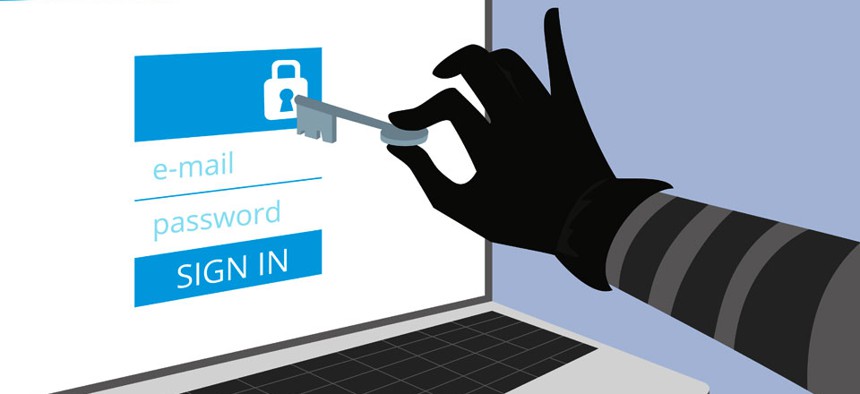Survey: Government Agencies May be Better than the Private Sector at Responding to Hacks

Julia Tim/Shutterstock.com
About 43 percent of the public sector falls into the "highly sophisticated" security posture segment, according to the 2015 Cisco security report.
Government agencies worldwide, compared to banks and many other companies, are better able to cope when the inevitable data breach occurs, according to an annual study on advances in cybersecurity.
About 43 percent of the public sector falls into the "highly sophisticated" security posture segment, according to the 2015 Cisco security report, scheduled to be released Tuesday.
“I think the government’s probably a bit more enlightened there than some of the other areas," Jason Brvenik, principal engineer of the Cisco Security Business Group, said in an interview.
The financial services (39 percent), transportation (35 percent), pharmaceutical (32 percent) and chemical engineering (25 percent) industries have less mature processes in place to handle intruders, according to the report.
The best security stances can be found within the telecommunications and energy sectors, tied at 47 percent.
No doubt, the executive branch has had its fair share of breaches, with incursions into systems at the Office of Personnel Management, National Oceanic and Atmospheric Administration, U.S. Postal Service, White House and State Department. Central Command, too, if you count compromises at third-party providers such as CENTCOM’s Twitter service.
But governments worldwide have damage control processes in place that are ready to roll when hacks happen, Brvenik said.
For example, agencies tend to use more techniques to analyze breached systems than the private sector, the study found. In banking and the other sectors, an intrusion occurs and companies are unable to respond, lulled into a false sense of security.
Brvenik said agencies concentrate on identifying and containing cyber assaults quickly, which is the right place to devote resources.
"Focusing on the question of how fast can I respond and how effectively can I contain or eliminate all other aspects of the process," he said. "The industry has tended to focus on prevention as opposed to creating visibility into appropriate levels of control. I think it’s time to pivot that perspective."
A nonscientific survey of data breaches over the past year turned up an insider job at Morgan Stanley, an internal attack at Capital One, data purloined from a Swiss bank held for ransom, a system compromise at HSBC Turkey, files seized at brokerage firm Benjamin F. Edwards, and a high-profile hack of JPMorgan.
Believe it or not, government employees are superior when it comes to seeing through email scams or phishing attacks than personnel in other sectors, according to Cisco’s research.
"An email that you send can have an infected attachment tag along," Brvenik said. "Users are being skeptical of all of the information they are presented with in the Twitter feed or email. The government has probably a better handle on that operational aspect of security than anybody at this point. Still, there’s a lot more room to improve, there’s a lot more progress to be made."
Cyber has become a boardroom discussion at organizations with highly sophisticated controls. Ninety-one percent of those entities strongly agree executives consider security a high priority.
But sophistication still leaves something to be desired.
More than half of all organizations polled, including sophisticated ones, do not use standard tools such as software updates to help prevent security breaches.
Cisco’s findings are based on survey responses from 1,738 chief information security officers and security operations managers in nine countries.
(Image via Julia Tim/Shutterstock.com)






